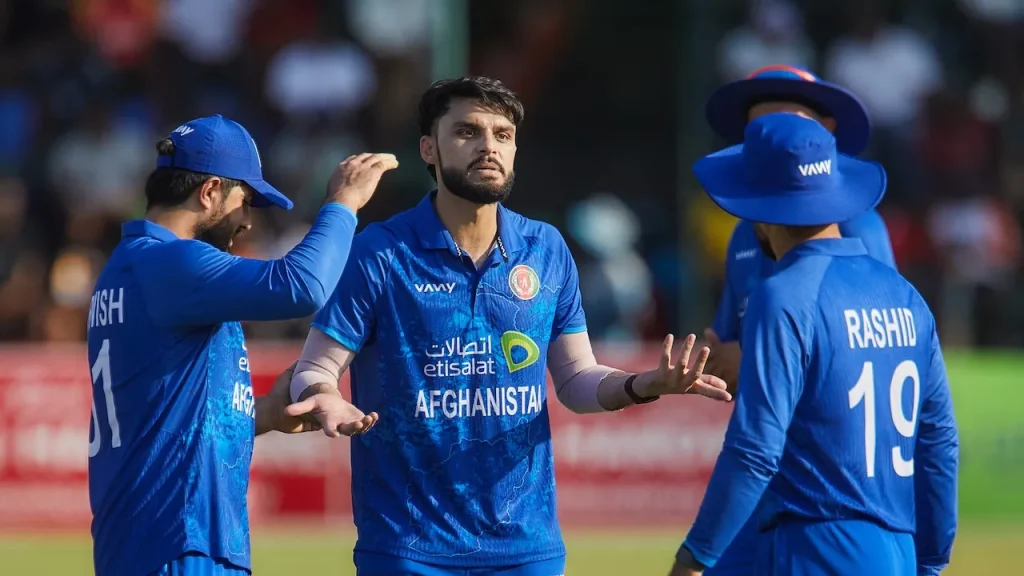The impending cricket match between England and Afghanistan in the ICC Champions Trophy has ignited a fierce debate surrounding sportsmanship, human rights, and political responsibility. Women’s rights activists are vehemently urging England to forfeit the game as a protest against the Taliban’s egregious human rights abuses, particularly their systematic oppression of women in Afghanistan. The Women’s Rights Network (WRN) has issued a compelling call to action, demanding not only the forfeiture of the upcoming match but a complete boycott of all sporting events involving Afghan national teams. Their statement emphasizes the stark contrast between the freedoms enjoyed by women in the UK and the severe restrictions imposed upon Afghan women under Taliban rule. They implore players and coaches to consider the moral implications of participating in a sporting event with a regime that denies women their fundamental human rights. The WRN argues that national pride should encompass a commitment to upholding human rights and opposing oppressive regimes. They maintain that participating in sports against Afghanistan would effectively condone the Taliban’s appalling treatment of women, a stance incompatible with the principles of human dignity and equality.
The heart of this controversy lies in the Taliban’s draconian restrictions on women’s lives in Afghanistan. Since their return to power in August 2021 following the US withdrawal, the Taliban have enforced a rigid interpretation of Sharia law, drastically curtailing women’s freedoms. Women are effectively confined to their homes, permitted to leave only in the company of a male relative and for essential purposes. Their public presence is further restricted by the mandatory wearing of full veils. The Taliban’s oppressive edicts extend to women’s voices and visibility, banning them from singing, reciting, or reading aloud in public. Interaction between unrelated men and women is strictly prohibited, reflecting the Taliban’s deeply conservative and patriarchal ideology.
The Taliban’s suppression of women’s rights also extends to education. Girls are prohibited from attending secondary school, effectively denying them access to formal education beyond the primary level. Even online learning opportunities, initially offered as a limited alternative, have been curtailed by the ban on women taking exams. This systematic denial of education deprives Afghan women of the opportunity to develop their potential and contribute meaningfully to society. The UN has expressed grave concerns about the Taliban’s escalating restrictions on women’s rights, highlighting the climate of fear and intimidation created by their edicts and enforcement methods.
The Taliban’s takeover, facilitated by the US military withdrawal, has plunged Afghanistan into a humanitarian crisis. The country’s economy has collapsed, exacerbating existing challenges and further marginalizing vulnerable populations, especially women. The cessation of international funding, a direct consequence of the Taliban’s return to power, has severely hampered reconstruction efforts and contributed to the overall deterioration of living conditions. The UNDP has characterized the economic situation as dire, underscoring the urgent need for international intervention to address the humanitarian crisis.
The calls for a boycott of sporting events with Afghanistan reflect a broader debate about the role of sports in international relations and the responsibility of sporting bodies to uphold human rights. Opponents of the boycott argue that sports can serve as a bridge between cultures and promote dialogue, even in the face of political disagreements. They contend that isolating Afghanistan through a sporting boycott could further marginalize the Afghan people and hinder efforts to promote positive change. However, proponents of the boycott emphasize the moral imperative to stand in solidarity with Afghan women and condemn the Taliban’s oppressive regime. They argue that engaging in sporting events with Afghanistan would legitimize the Taliban’s rule and undermine international efforts to pressure them to respect human rights.
The decision facing England’s cricket team carries significant symbolic weight. It represents a choice between prioritizing sporting competition and upholding fundamental human rights. The outcome will resonate far beyond the cricket field, sending a powerful message about the international community’s commitment to holding the Taliban accountable for their actions. The debate highlights the complex interplay between sports, politics, and human rights, raising crucial questions about the responsibility of sporting bodies and athletes to address human rights abuses and promote social justice. The international community will be closely watching England’s decision, recognizing its implications for future engagements with regimes that violate fundamental human rights.


